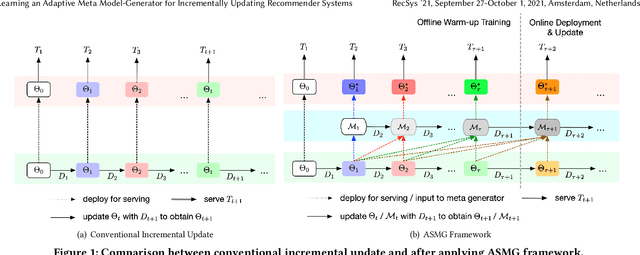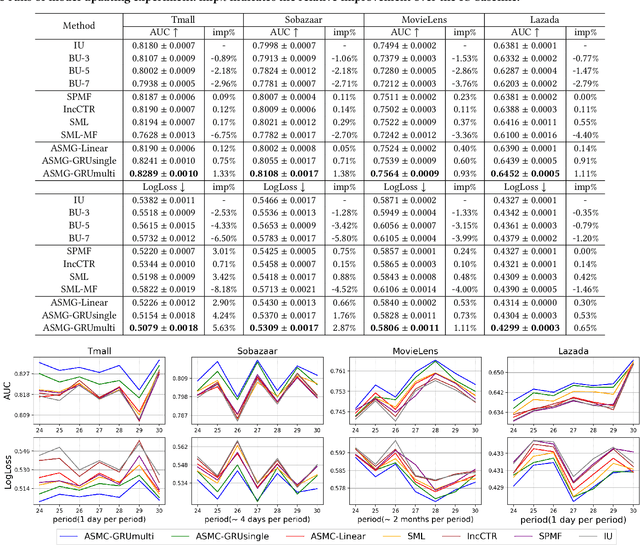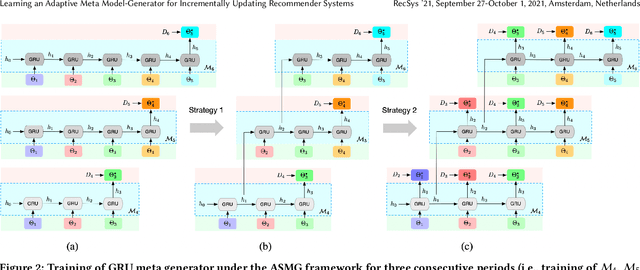Learning an Adaptive Meta Model-Generator for Incrementally Updating Recommender Systems
Paper and Code
Nov 08, 2021



Recommender Systems (RSs) in real-world applications often deal with billions of user interactions daily. To capture the most recent trends effectively, it is common to update the model incrementally using only the newly arrived data. However, this may impede the model's ability to retain long-term information due to the potential overfitting and forgetting issues. To address this problem, we propose a novel Adaptive Sequential Model Generation (ASMG) framework, which generates a better serving model from a sequence of historical models via a meta generator. For the design of the meta generator, we propose to employ Gated Recurrent Units (GRUs) to leverage its ability to capture the long-term dependencies. We further introduce some novel strategies to apply together with the GRU meta generator, which not only improve its computational efficiency but also enable more accurate sequential modeling. By instantiating the model-agnostic framework on a general deep learning-based RS model, we demonstrate that our method achieves state-of-the-art performance on three public datasets and one industrial dataset.
 Add to Chrome
Add to Chrome Add to Firefox
Add to Firefox Add to Edge
Add to Edge